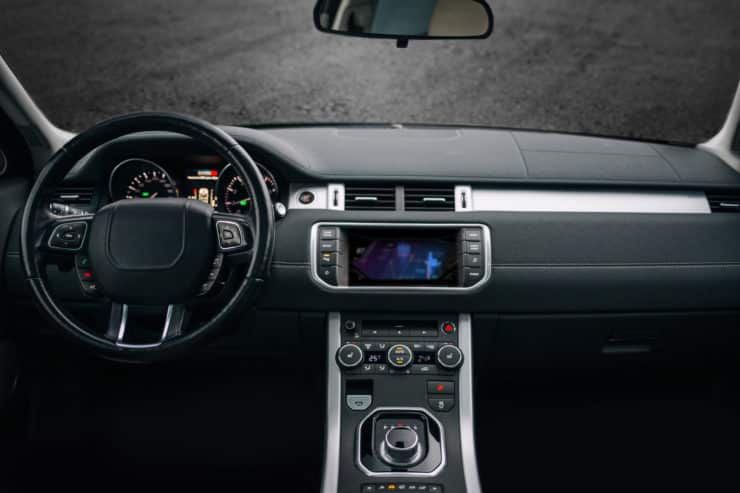FAQ
Turbos used in automobiles increase engine efficiency and power by forcing compressed air into the combustion chamber. When they fail, cars can lose power and drivers can lose control.
Drivers have reported turbo failures in first-generation L538 Land Rover Evoque, Land Rover Discovery Sport, and Land Rover LR2 vehicles. Mechanics have suggested that these failures may be due to a design problem. People who purchased or leased a Land Rover Evoque, Discovery Sport or LR2 automobile manufactured between 2012 and 2017 may have been placed at risk of financial loss and bodily harm.
Jaguar Land Rover, a subsidiary of Tata Motors, may face thousands of lawsuits filed by Evoque, Discovery Sport, and LR2 car operators and owners who have experienced turbo failure.
What is the Land Rover turbo failure lawsuit about?
Because Land Rovers are known for their durability and power as off-road vehicles, their cars are often equipped with turbocharged engines, but certain models may be prone to failure. According to auto repairer GDL Services, most turbo failures are caused by oil starvation, but failures in affected Land Rover models may be due to faulty design.
L538 Land Rover Evoque, Discovery Sport, and LR2 cars, are manufactured with a turbo charger that is a part of the exhaust manifold, which collects expelled gas from multiple cylinders of the engine into a single pipe. The design requires that that two separately casted pieces of machinery have been welded together with a joint that may come loose.
GDL Services explains that “here these castings are welded there is an internal ribbing that can come loose. This piece rattles around inside the manifold making a racket and very quickly jams on the turbine and locks the turbo up.” This can result in the car losing power.
Repairing a failed L538 Land Rover Evoque, Discovery Sport, or LR2 turbo entails replacing the entire manifold and hours of labor. In a worst-case scenario, small metal fragments may enter the engine and damage it.
What are the Risks of Turbo Failure?
Signs of turbo failure may include:
- Loss of power
- Check-engine light is illuminated
- Dark exhaust smoke
- Loud noises
- P0299 onboard diagnostic code (OBD-II)
Turbo failure may affect vehicle performance and result in rough gear shifting, vehicle lurching or other performance issues, and may be particularly noticeable on deceleration or during speed changes.
Failure of the turbo charger may result in power loss and inability to control the vehicle which may pose a risk of bodily injury. In addition, people who purchased or leased a turbocharged Land Rover vehicle may have paid a premium for the features. Failures of the turbocharger may lead to a loss in value of the automobile due to malfunctions or reputation.
What vehicles are affected?
Land Rover vehicles affected by the turbocharger issues include:
- 2012-2017 Land Rover Range Rover Evoque 2.0 Liter;
- 2015-2017 Land Rover Discovery Sport 2.0 Liter; and
- 2013-2015 Land Rover LR2 2.0 Liter.
The Land Rover Evoque is a midsize luxury SUV. Introduced in 2011, the first-generation (model L548) was manufactured until 2018. In 2018, the second-generation L551 model was released.
The Land Rover LR2 is a compact SUV. Introduced in 2007, it was eventually replaced by the Land Rover Discovery Sport in 2015.
The Land Rover Discovery Sport is a compact luxury SUV. Introduced in 2014, it became Land Rover’s bestselling model in 2017.
Is there a Land Rover recall?
Though there have been a number of complaints, no recall is currently in effect.
Is there a Land Rover lawsuit?
Land Rover Jaguar has faced numerous lawsuits filed over turbo charger failure, including a class action lawsuit which sought compensation for repair costs and vehicle value losses. Though a major lawsuit was dismissed, additional filings may be under consideration.
Protecting car owners
If you have been injured or defrauded by an auto company, you may be eligible for compensation. For victims of corporate fraud, abuse, or malfeasance, legal action can offer both a remedy and a way to hold corporate wrongdoers to account.
Seeger Weiss LLP has represented victims of large scale corporate wrongdoing for more than two decades. In particular, it’s represented drivers in the world’s largest corporate settlement in history: over $21 billion from Volkswagen after the automaker equipped “clean diesel” cars with devices to cheat emissions standards tests.
Seeger Weiss currently represents thousands of car buyers all over the United States in active litigation against carmakers GM and BMW.
